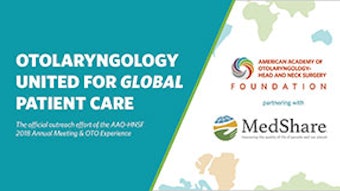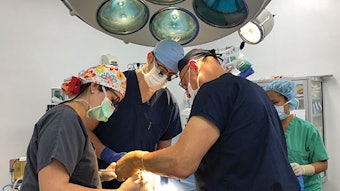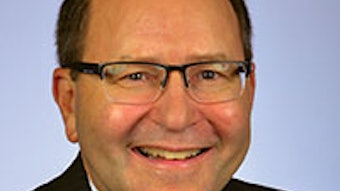International Guest of Honor 2018: Portugal
Portugal is the most western country of Europe, with a particular geographical morphology, referred by our most famous modern poet, Fernando Pessoa, as a staring face looking to the West (America) and to the future: “[Europe] stares with a fatal, sphinxian gaze to the West, the future of the Past.
“As President of the AAO-HNS/F, it is my great honor and privilege to welcome the Portuguese delegation from The Portuguese Society of Otorhinolaryngology – Head and Neck Surgery (SPORL) to the AAO-HNSF 2018 Annual Meeting & OTO Experience in Atlanta, Georgia, in October. We look forward to the wonderful opportunity for continued friendship, camaraderie, and networking among friends and colleagues at the meeting. In addition, we anticipate and look forward to our societies working closely together to improve the care and quality outcomes for our patients worldwide through this continued collaboration and outreach as our global message continues to resonate around the world.”
— Gavin Setzen, MD
AAO-HNS/F President
Jose Ezequiel Pereira Barros, MD, President, SPORL
Portugal is the most western country of Europe, with a particular geographical morphology, referred by our most famous modern poet, Fernando Pessoa, as a staring face looking to the West (America) and to the future: “[Europe] stares with a fatal, sphinxian gaze to the West, the future of the Past. The staring face is Portugal.” Symbolically, these ideals define the Portuguese people: Portugal is one of the oldest countries of the world, founded on July 26, 1139, and the Portuguese were pioneer explorers setting out in daring sea voyages, reaching places as far as Africa, Asia, North America, and Brazil. More than 1.1 million United States citizens have Portuguese ancestry.

The Portuguese are known for technical and scientific advances. A Portuguese doctor named Egas Moniz, MD, won the Nobel Prize in Medicine in 1949 for his research in psychosurgery and was the first to develop cerebral angiography.
The regulation of medical practice was implemented in Portugal in 1392. Candidates had to be assessed and approved by the physician of the King before starting to practice. The first medical schools and major hospitals in Portugal appeared in the 15th century. Portuguese contemporary textbooks contained detailed descriptions of dissections and have references to the sphenoid bone, ear anatomy, temporal bone and olfaction, among other otolaryngology topics. After 1835, with the creation of Portuguese medical journals, several otolaryngology topics were published, including a case report of a two-year-old child with diphtheria treated with success; a review of tracheostomy; and a description of a surgical technique for rhinoplasty, among other topics.
Presently, in all eight Portuguese medical schools, undergraduate otolaryngology education includes mandatory clinical rotations in otolaryngology. Residency programs last five years, are regulated by the national health authority, and include a strong exposure to all the fields of our specialty. Portugal has a favorable legislation for medical education because the use of cadavers and specimens for teaching is allowed. As a consequence, residents have the opportunity to develop surgical skills acquired during regular training and in national and international courses developed by several Portuguese academic institutions. Most Portuguese residents participate in clinical elective rotations in well-recognized departments of otolaryngology in other European or non-European countries (foreign residents also look frequently to Portuguese otolaryngology departments to complete their formal training). Basic and clinical research are also encouraged, and most Portuguese residents finish their residency programs with studies presented in international conferences and papers published in peer-reviewed periodical medical journals of the specialty.
The Portuguese Society of Otorhinolaryngology – Head and Neck Surgery (SPORL) (formerly Portuguese Society of Otorhinolaryngology and Broncho-Esophageology) was created in 1953. At the present, the society has 633 members in practice and 116 members-in-training.
The mission of the SPORL includes: a) the promotion and support of activities aimed at the scientific capacitation of its members; b) the defense of the professional interests of otolaryngologists in private practice, public hospitals, and other places where their activity is developed; and c) the cooperation with national and international entities.
To carry out its duties, SPORL:
- Organizes the Annual Congress for all its members, whose venue rotates through several regions of the country
- Supports scientific meetings promoted by its members
- Participates in congresses held by other scientific organizations whose purpose is the development of the specialty
- Has committees for the subspecialties and other subjects, such as Ethics,
- Education and Research, and International Relationships
- Edits publications, with relevance for the Bulletin and for the periodical medical journal of the society
- Promotes campaigns with the authorities and the public in general to a better understanding of the treatment and prevention of ENT diseases
- Cooperates with the Portuguese Medical Association and health authorities to promote training and education of its members
- Promotes all forms of collaboration with similar foreign societies.
Nowadays, Portugal is also one of the world’s leading tourist destinations. We expect that SPORL and AAO-HNSF can work closely together to improve the care and quality outcomes for the patients of their countries and of the rest of the world.
















